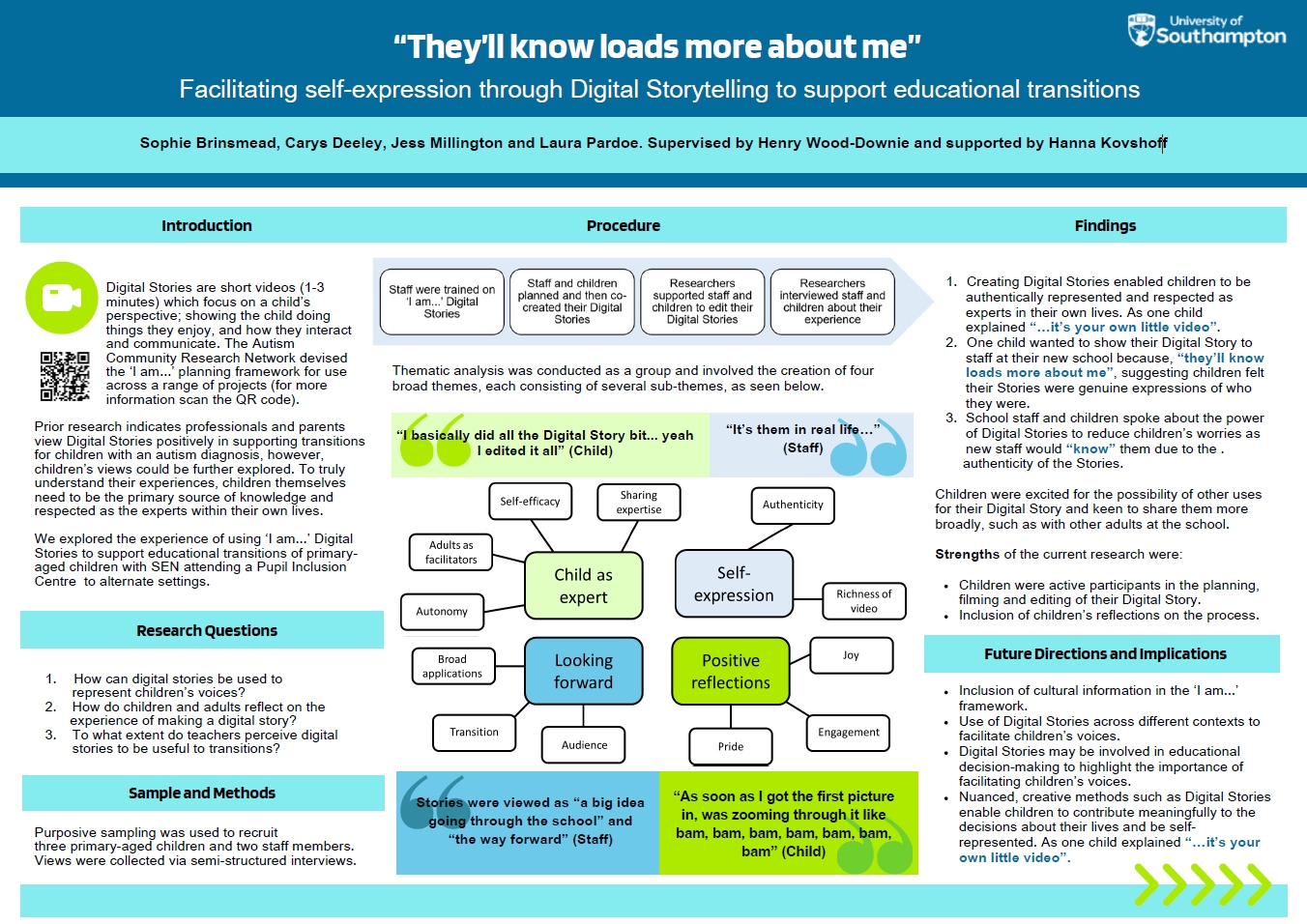Authors: Sophie Brinsmead, Carys Deeley, Jessica Millington, Laura Pardoe, Hanna Kovshoff and Henry Wood-Downie
Published: 2025
Publication: European Journal of Education
The views of children with special educational needs and disabilities are frequently left out of educational decision-making processes. In recent years, researchers have sought to employ creative methods to facilitate children’s voices in areas of importance.One such area is transitions between educational settings, a significant time that has the potential for positive outcomes. One creative method of exploring children’s views of transitions is Digital Stories, a strength-based video methodology. The aim of this research was to explore ways that Digital Stories can be used to facilitate children’s voices at a time of transition. Interviews were conducted with three children and two members of staff at a pupil inclusion centre after they had co-created Digital Stories. The research provided a new contribution to the literature on Digital Stories by exploring children’s views of the process. Codebook thematic analysis resulted in four main themes: child as expert, self-expression, positive reflections and looking forward. Overall, children and staff were positive about the process of creating Digital Stories to support transition to new educational settings. Limitations, directions for future research and implications for professionals are discussed.
Brinsmead, S., Deeley, C., Millington, J., Pardoe, L., Kovshoff, H. & Wood-Downie, H. (2025). ‘They’ll Know Loads More About Me’. Facilitating Self-Expression Through Digital Storytelling to Support Educational Transitions European Journal of Education, 60(2). https://doi.org/10.1111/ejed.70058
Download (open access publication)

